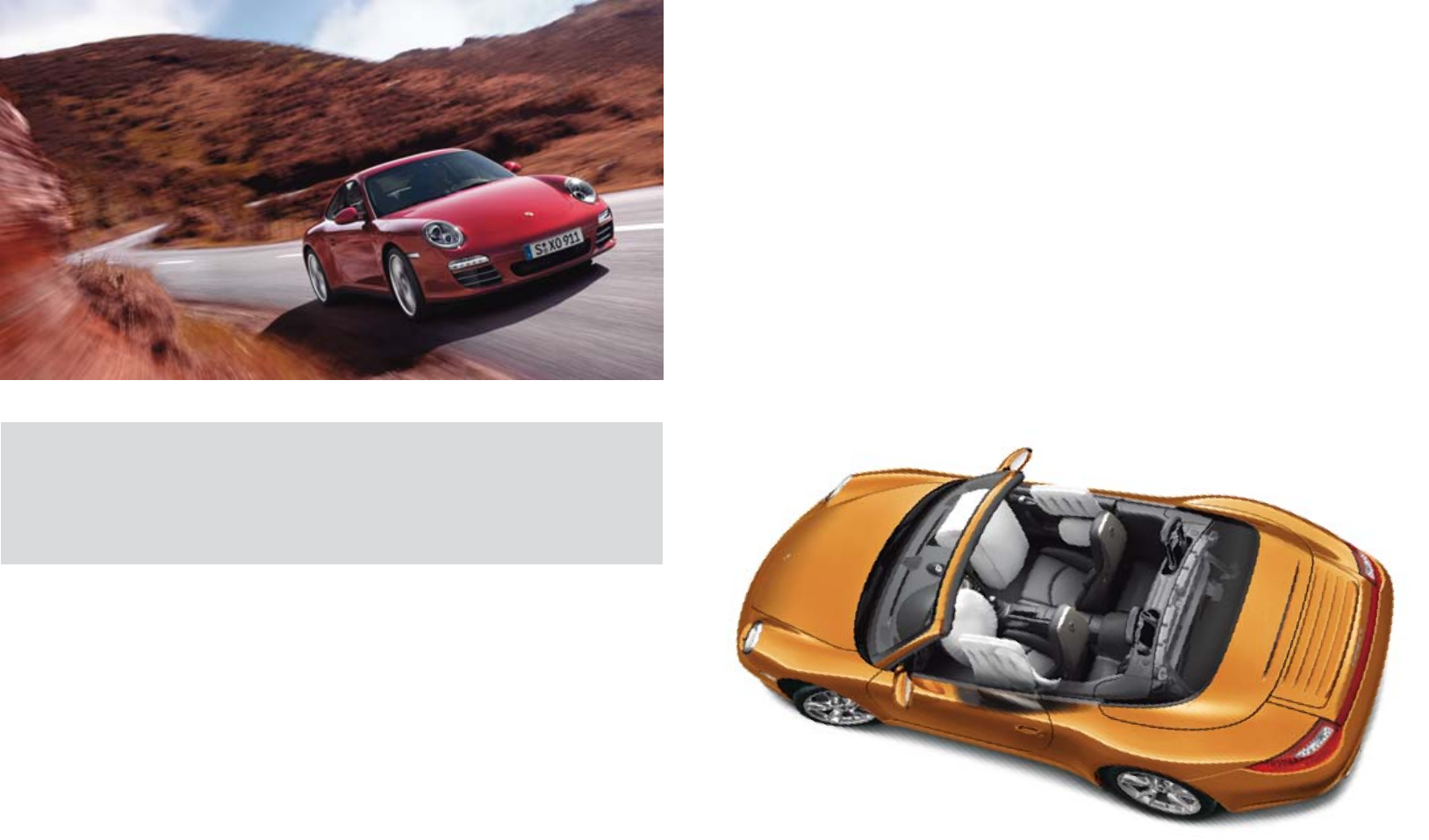
·92·
911 Carrera 4S
We have been innovators not only
in production installation, but also
in airbag technology. Porsche set
the benchmark by introducing a
non-azide gas generant based on
an organic propellant. This makes
the driver airbag lighter and more
compact, and also makes it easier
to recycle.The new 911 models
benefit from airbag technology
that has been improved further
still in the form of full-size airbags
for driver and passenger which
are inflated in two stages depend-
ing on the severity and type
of accident (e.g. frontal or offset
frontal). In less serious accidents,
the airbag is only partially inflated,
thereby minimising discomfort to
the occupants.
In addition to the central airbag
control unit on the transmission
tunnel, a pair of impact sensors
Passive safety: airbags.
What all sports enthusiasts take for granted:
reliable protection of sensitive areas.
·93·
The new 911 | Safety
Porsche Side Impact Protection System (POSIP)
are located near the headlights.
This allows a crash to be detected
and evaluated far sooner and with
considerably greater accuracy.
All 911 models are equipped with
Porsche Side Impact Protection
(POSIP) as standard. It comprises
two airbags on each side instead
of the usual one. An integral
thorax airbag is located in the
seat backrests, while the door
panels each contain a head
airbag. With each having a volume
of approximately 8 litres, the
thorax and head airbags offer
excellent protection in the event
of a side impact. Naturally, their
design protects the occupants
of the 911 Carrera Cabriolet
models and the 911Targa 4
models, even with the roof open.
The head restraints are integrat-
ed into the backrests. Also
standard are the safety steering
column, three-point seat belts,
belt height adjustment (not on
911 Carrera Cabriolet models),
front seat-belt pretensioners and
force limiters, energy-absorbing
elements in the dashboard
and flame-retardant materials
throughout the interior.


















